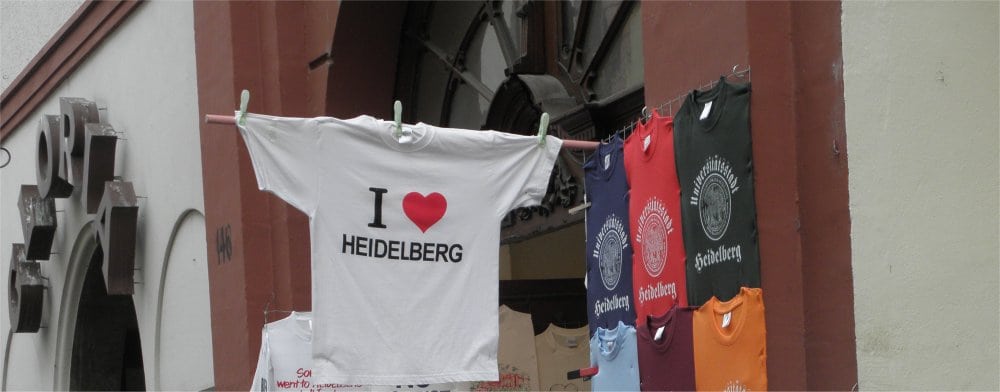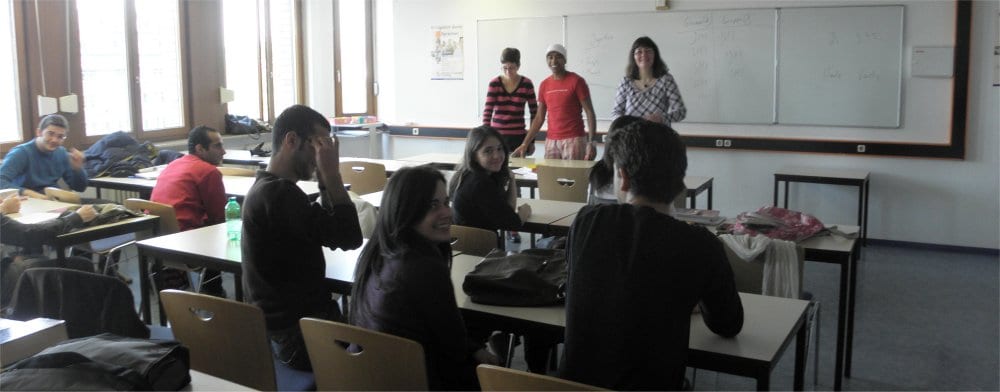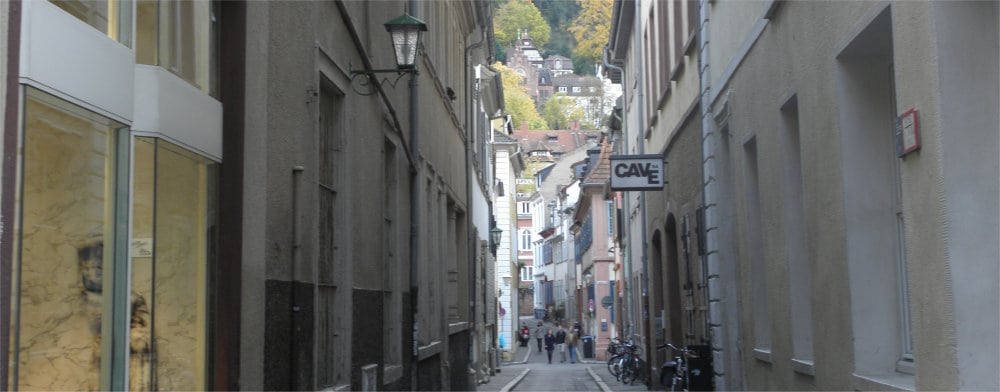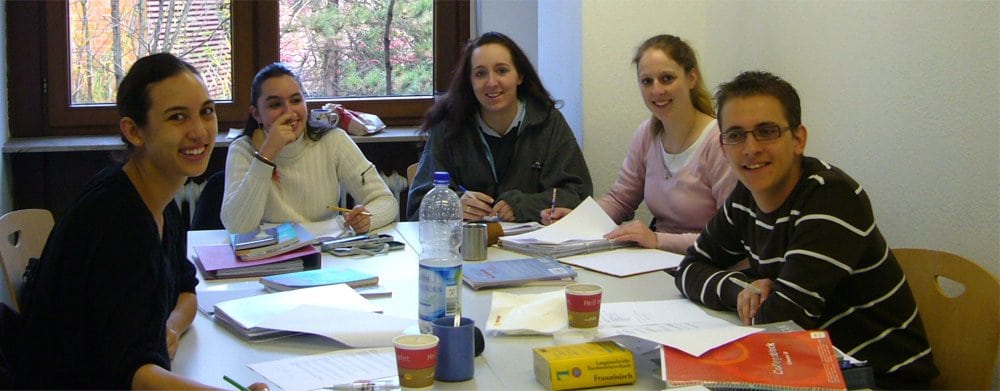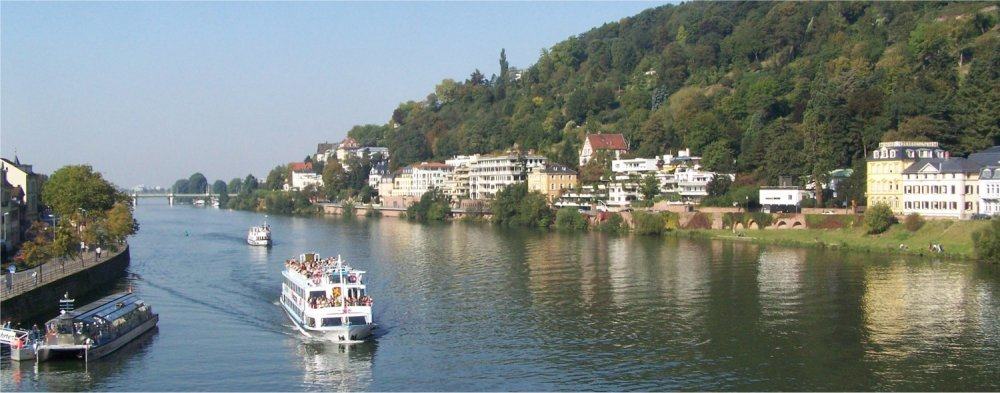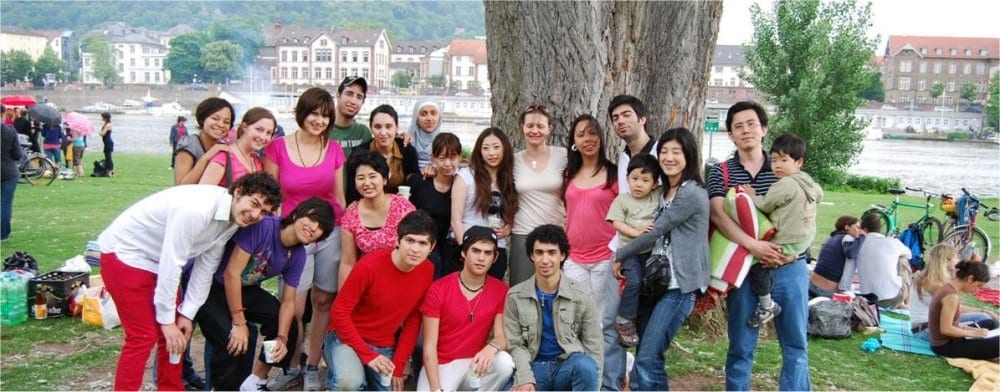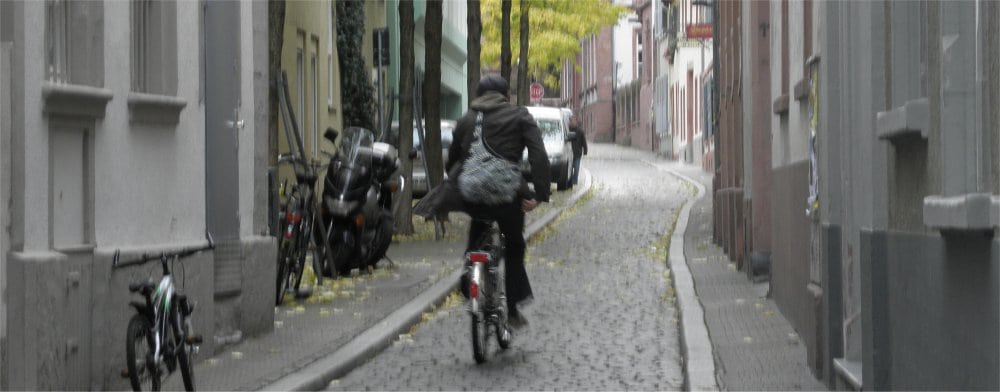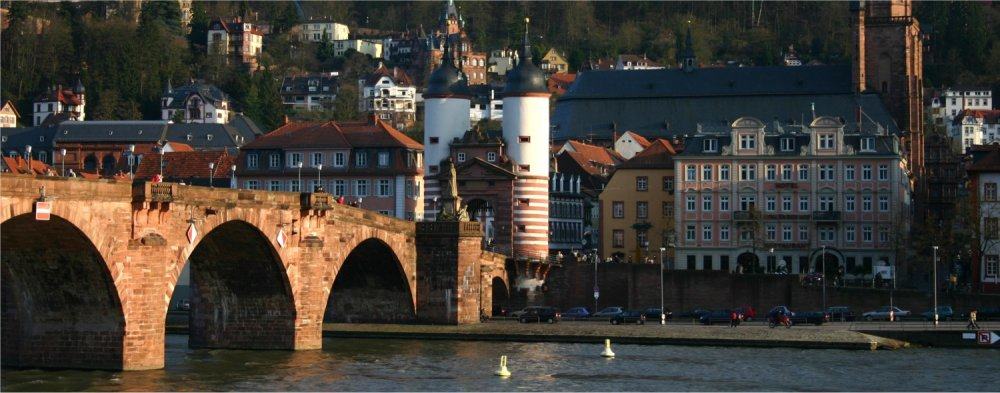Learn German in Heidelberg: Location
Heidelberg is a fabulous language course destination – with plenty of life, beautiful scenery, a vibrant University student scene, buckets of culture, nightlife and yet is quite a compact city with good public transport that ensures commuting is kept to a minimum. It appeals to German language learners of all ages, abilities and students have always enjoyed their programmes in this picturesque and historic city. Whatever your interests, Heidelberg has the solution, whether you have only one week to spare or plan on attending an Academic Year language programme of 36 weeks.
Situated in the south-west of Germany, it is the fifth largest city of the German Federal State of Baden-Württemberg and home to some 145,000 people. Heidelberg is part of a densely populated region known as the Rhine-Neckar Metropolitan Region and lies on the banks of the River Neckar.
Heidelberg consists of fourteen districts which are distributed in six sectors of the city. In the central area of the city there are Altstadt (the Old Town), Bergheim, and Weststadt. In the northern part of Heidelberg there are Neuenheim and Handschuhsheim. In the east there are Ziegelhausen and Schlierbach whereas in the south there are Südstadt, Rohrbach, Emmertsgrund, and Boxberg. Finally, in the south west, there is Kirchheim and in the west there are Pfaffengrund and Wieblingen.
Year-round there are fairly mild temperatures and the city gets its share of rain throughout the year, with snowfall January to March. The warmest month is July and the coldest is January. Temperatures can rise to more than 30°C in the height of summer.
Heidelberg is world famous for its institutions of higher education. The most famous being the Ruprecht-Karls University of Heidelberg. Founded in 1386, it is one of Europe’s oldest institutions and played a leading part in the era of humanism & reformation and the conflict between Lutheranism & Calvinism in the 15th and 16th centuries. In fact, Heidelberg is the oldest university town of today’s Germany and Heidelberg’s library, founded in 1421, is the oldest public library in Germany still intact.
Much of central Heidelberg is dominated by its imposing, elevated castle ruins, known as the Schloss, impressive Gothic-Renaissance remains that dominate the town. Heidelberg’s other primary sights include: the Altstadt (old district) with fabulous historic buildings and shops to explore, Bergbahn – a historic funicular (mountain railway) dating back more than 100 years; Neckar River Cruises – a pleasant way to view much of Heidelberg, with boat trips lasting from one to several hours; Neuenheim Market – offering a taste of traditional German life, with fresh produce and stalls to explore; the Philosophenweg – a scenic path overlooking much of Heidelberg, and the Botanischer Garten der Universitat (University Botanic Gardens) dating back to the 16th century.
Heidelberg is home to many excellent museums and art galleries. Each March, the extremely popular ‘Long Night of the Museums’ is a major event, where the main museums remain open all through the night. The top museums in Heidelberg include the University Museum – with information about the city’s acclaimed university; the Textile Museum – celebrating the city’s textile industry and production methods; Heidelberg Art Gallery – hosting many displays and exhibitions of both international and national pieces; and the Museum of Ancient Art – home to an outstanding archaeological collection of art works.
For wine lovers Heidelberg offers a wealth of nearby vineyards and wineries with wine tastings and tours a plenty to choose from.
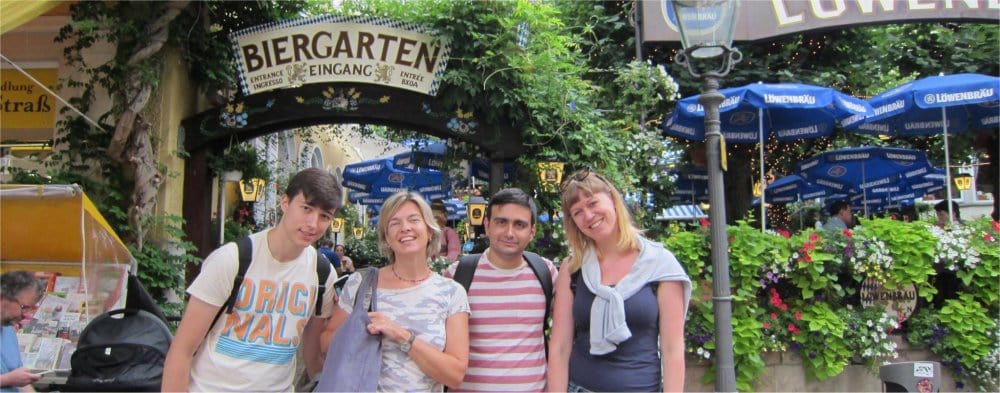
Sights outside the city:
Visit Frankfurt Am Main to the north – with its modern skyscrapers, or the historic Altstadt district in nearby Mainz, the magnificent 18th-century Palace in the city of Mannheim, the grand 11th-century Cathedral in the medieval town of Speyer, and the Baroque atmosphere of Stuttgart home to Ludwigsburg Palace.
Close to Heidelberg are various walking trails around its surrounding countryside, along the River Neckar and throughout the Neckar Valley, which is home to no less than four castles.

